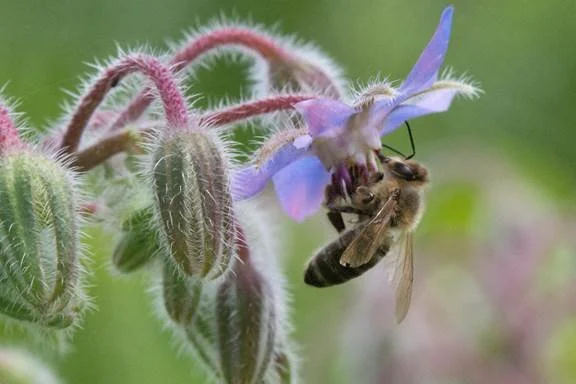While the larger forces threatening pollinator populations may seem far away or hard to grasp, we can take practical steps every day here at home to support native and naturalized pollinators.
Two bee species side by side on a zinnia. Photo: Juno Lamb
On Monday, April 17 at 7PM, join the Chocorua Lake Conservancy and the Cook Memorial Library live via Zoom for Pollinators & Climate Change Considerations, with Athena Contus. New Hampshire’s cold climate currently boasts plant hardiness zones that provide rich & wild seasonal forage for equally hardy insects, far from contaminants and harmful practices associated with industrial agriculture. As our population increases from southern parts of the country, and land use changes with longer, warmer seasons, the ever-accommodating honey bee lends us valuable insights into how all our pollinators may be at risk. This program will discuss common sense practices to help beekeepers, gardeners, home owners, and land managers avoid common mistakes while working and living with the valuable pollinators of our local farm and forest community.
This free program is part of the CML/CLC series “Climate & Community.” Please register in advance below. You will receive a Zoom link in the confirmation email.
Athena Contus has been keeping bees in the Sandwich Mountain Range of New Hampshire since 2008. She currently serves on the board of the Winnipesaukee Beekeepers Association and as a teacher of Apiary Management through the Carroll County New Hampshire Adult Education Program. She received her Master Beekeepers Certification through the University of Montana with a long history of cold-climate honey bee research, while continuing her education through the Cornell University Master Beekeepers program.
Banner image: “Old Girl,” one of Athena Contus’s honey bees, whose tattered wings show that she is nearing the end of her life, on a borage flower. Photo: Andrew Thompson, Wild Light Images.

